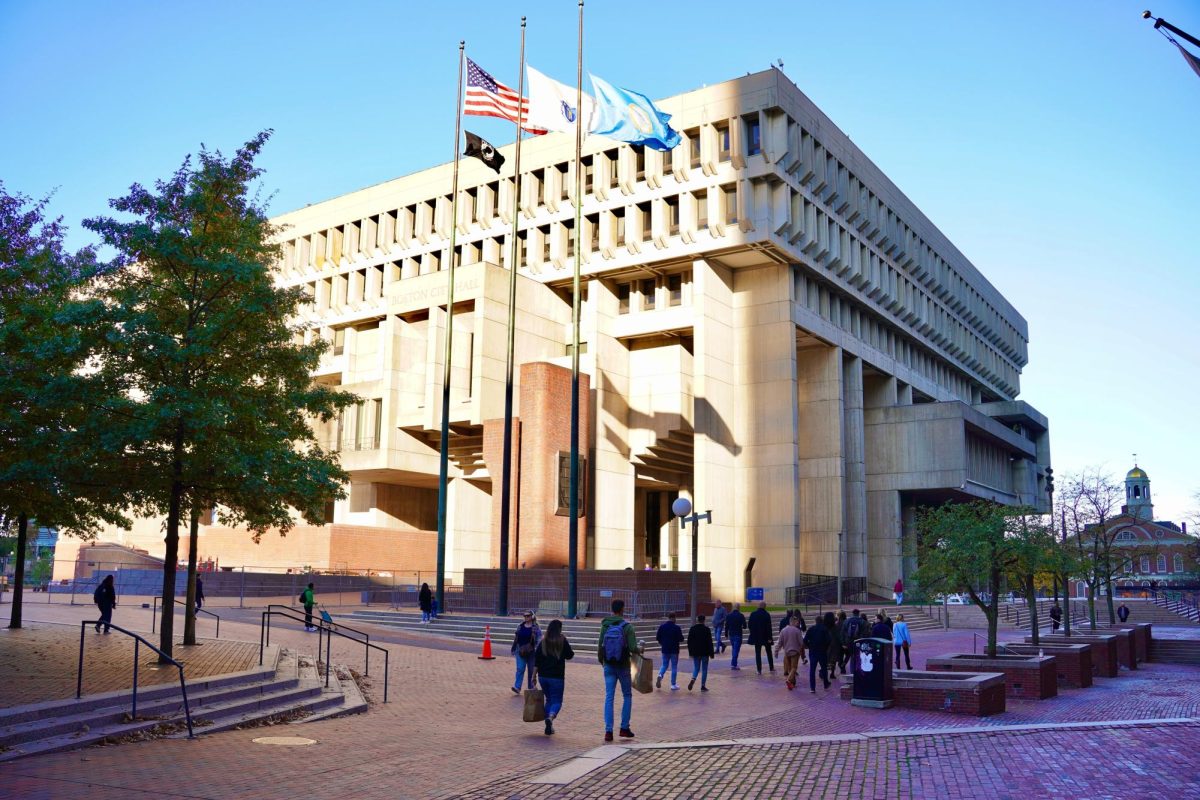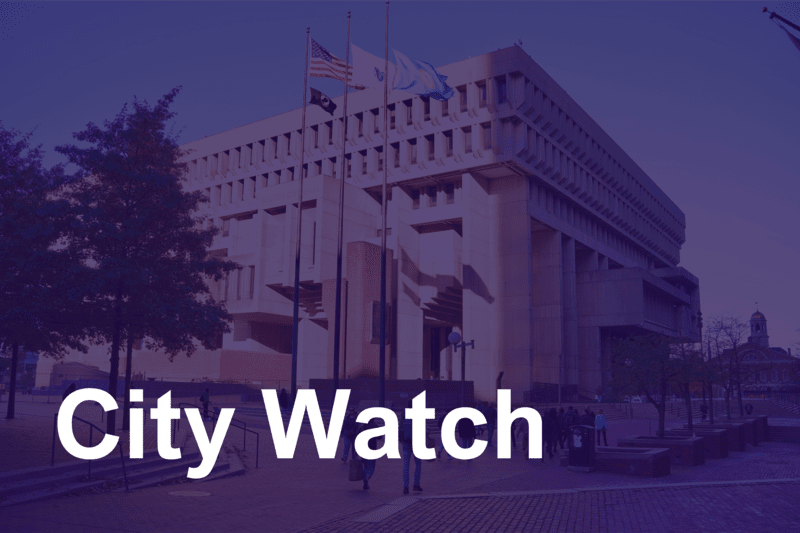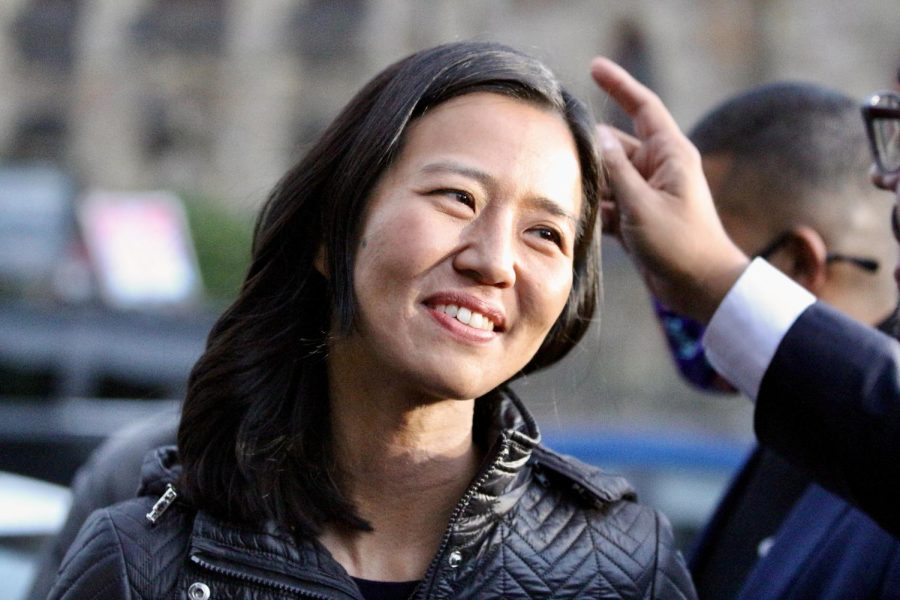On January 24th, Boston’s City Council met for the first time in 2024, opening the session with an invocation by Reverend Mariama White-Hammond. Her speech, delivered via Zoom, conveyed messages of hope and stressed the importance of what lay ahead for the new term.
“God, we hope you would endow this council with vision, that you would help them to set the direction for the new year, and that you will bring them together to move forward,” said the Reverend. “God, I pray that you fill that council chamber with a sense of collaboration and respect.”
Despite some serious tension at the tail end of the 2023 term – particularly surrounding a vote seeking to approve a 13.3-million dollar grant from Homeland Security – spirits in the chamber appeared to be high. The session was marked by collaboration between council members, with multiple councilors embracing each other throughout the afternoon.
Given the number of ordinances and home rule petitions which were refiled from the previous session, the session was lengthy and is expected to set the tone for the upcoming year, addressing pressing questions like how to best hold pharmaceutical conglomerates accountable for closing stores in the city, as well as addressing the rising concern of flooding. As always, the full video of the meeting and meeting minutes are available online.
Louijeune begins presidential term
In the middle of discussing an ordinance, Councilor Tania Fernandes Anderson smiled as she began to thank the new president of the Boston City Council, at-large Councilor Ruthzee Louijeune. “[Madame President] is starting to flow…it feels good!” Her eyes pointed down as she humbly chided herself. “Stop being so jealous!”
Since her inauguration, Louijeune has expressed her intentions to fix the acrimony within the council. Louijeune recently attended the closing Walgreens on 416 Warren Street – a topic which has sparked much debate among council members – alongside Senators Edward Markey and Elizabeth Warren, as well as local activists, Louijeune’s leadership was apparent in the first session, as she was involved with thirty-five motions on the docket.
The meeting was not all smooth sailing, though. There were a fair number of technical issues and procedural errors in which Louijeune was at fault.
Homeland Security grant returns for round two
In a weekly council meeting at the end of 2023, the representatives debated a 13.3-million dollar grant from the Department of Homeland Security designated to fund counter-terrorism measures within the city. The grant – which previously split the council in half after a deadlocking six-to-six vote, causing the council to reject the bill – returned to kick off the current session. This follows comments from the former council president Ed Flynn and U.S. Representative Jake Auchincloss, who does not represent the city of Boston, which slammed the council for rejecting the grant in December, accusing them of not taking public safety seriously.
Discussion on the topic was relatively brief, and left more questions than answers. Councilor Brian Worrell, as the Vice Chair on the Committee of Public Safety, spoke first by committing to passing the grant, adding that “several of our colleagues had some lingering questions which I now believe have been answered.” However Worrell did not explain what questions were answered. Councilor Julia Mejia came into the conversation recommending that the council show the public that they were committed to taking a judicious approach, and that the vote should be tabled for further discussion.
Flynn was not present for the session as he is currently joining other U.S. politicians in a ‘fact finding visit to Israel’. The former president missed the discussion in which there was no vote. Instead, the bill was sent to the Committee on Public Safety & Criminal Justice.
Councilors vote to engage with District 7 community over pharmacy concerns
Worrell and Anderson chided the conglomerate Walgreens for the continued closures of pharmacies within the predominantly Black and brown communities of Roxbury, Hyde Park, and Mattapan.
The community has voiced concern in recent weeks as this Walgreens on the corner of Martin Luther King Jr. Boulevard follows the closure of three other locations in the area in 2022. In the council meeting, Anderson sympathized with residents in the area, remarking that the remaining location on Columbus Avenue is not “really available by public transportation” and expressed frustration that the company did not give either council or the public “advance notice regarding the impending closure.” The store was destined to be closed on the Martin Luther King holiday.
Worrell, in his portion of the speech, stressed that the location is a space where “a boy can get his inhaler, a grandmother can get her heart medicine, as well as a place that sells bread, paper towels, and a place that gives vaccines to the communities which have been most affected by COVID-19.”
While the councilors acknowledged that they cannot demand a private entity to make a final decision on whether to keep the store open, they stressed that the city should be supporting local businesses rather than larger corporations solely focused on profit.
An interesting piece of the discourse came from a man sitting in the public gallery, who pointed to a lack of action by the City Council as hypocritical. Speaking out loud in the council chamber, the man stated that the lack of support from the council following the closure of Prime Pharmacy at 201 Humboldt Avenue escalated the current issue. The man was quickly escorted out afterwards.
Despite the public protest, Mejia seemed optimistic about the discussion held in City Hall and hoped that the hearing could provide a space for Roxbury to “reclaim our space and occupy [while] holding Walgreens accountable.”
The vote for a hearing has been approved and further discussion remains on how to solve the issue.
Flooding in Boston is inevitable, come hell or high water
Since being elected to represent East Boston in 2022, Councilor Gabriela Coletta has made environmental action among her top priorities. In her tweet wrapping up the state of District 1, Coletta placed fortifying the Boston waterfront from coastal flooding as her top policy priority. It is clear this issue is a major priority for the councilor given that it was also featured in her maiden speech.
Since Coletta established coastal flooding resilience as a priority in June of 2022, there has been little movement towards making this policy a reality. This is in spite of climate experts demanding that Boston make progress; the most significant report coming in December 2022, a 40 page report highlighting some of the worst aspects of the problem, such as lack of public shoreline ownership, outdated laws, and insufficient funding.
“This is an important issue near and dear to my heart,” said Coletta. “Forty five percent of Suffolk County’s critical infrastructure will be underwater – hospitals, schools, police, fire, and emergency services–in addition to the thousands of individuals that stand to be displaced if we do not act with urgency to fortify our coastline…We’re now beyond the assessment of identifying which areas will be hit first and worst, and now it is implementation time.”
Among the issues posited in the report, Coletta stressed the lack of funding as perhaps the primary obstacle at this stage.
“We must reach out to philanthropic partners as the projected cost of this is 3.5 billion dollars,” Coletta said. ”I am happy to refile to continue this conversation, apply some friendly pressure to the administration and move forward.”
In her speech, Coletta compared her flood management policy to three example cities. The first two, Rotterdam and Amsterdam, who are both sister cities of Boston, should be no surprise, as the Netherlands is considered the forefront of climate adaptation against flooding worldwide. The third city has become an example of an American city seeking to protect its people from climate disaster: Hoboken.
Since Hurricane Sandy, Hoboken has spent significant resources on a project called Rebuild by Design. The city has invested 230 million dollars from HUD to create hard and soft barriers to mitigate future natural disasters.
Flooding continues to get worse in Boston, and it has become clear that the city is under risk if inaction persists. Hopefully, the newfound collaborative spirit of the City Council can guide us towards effective future policy.




